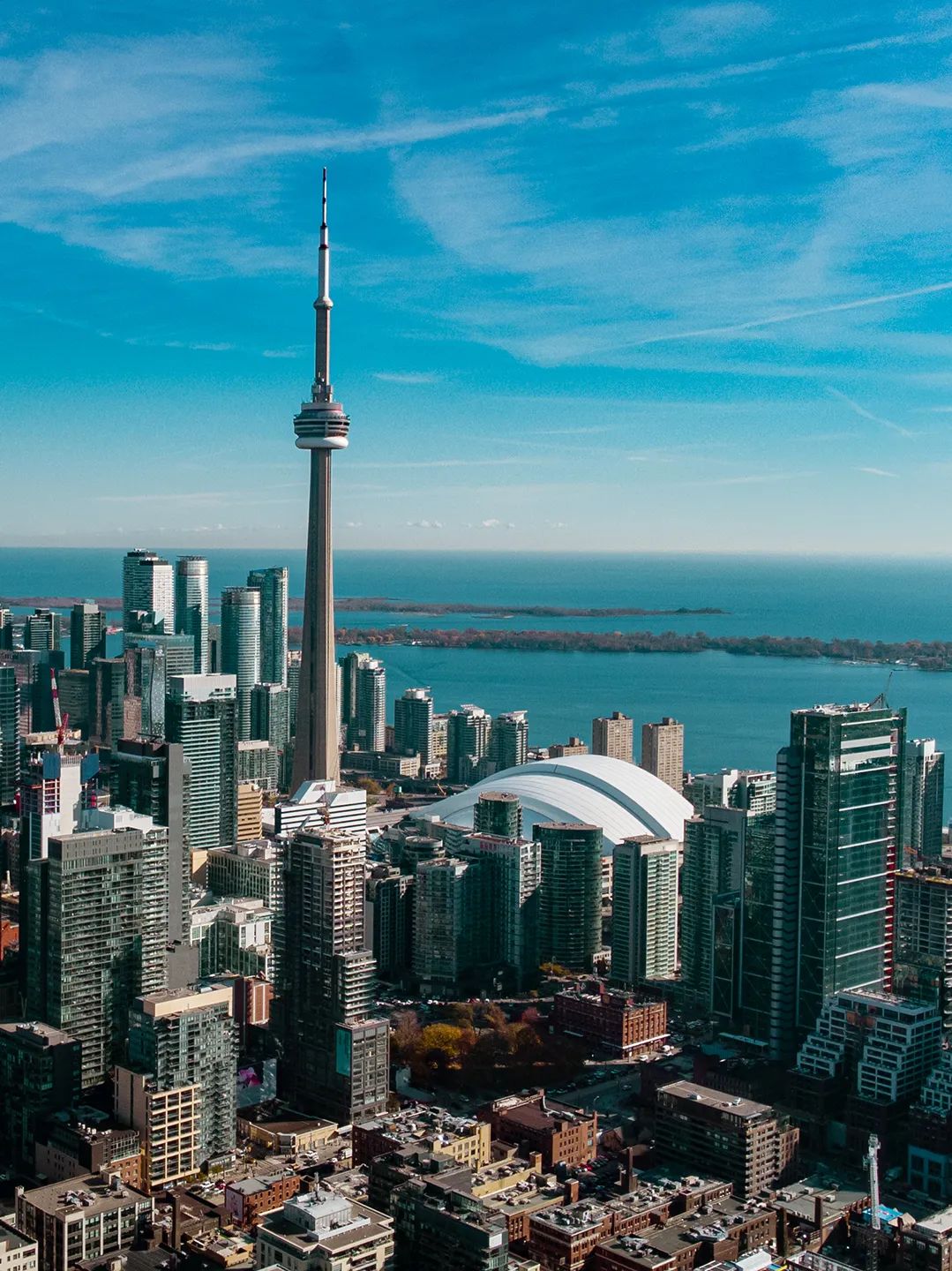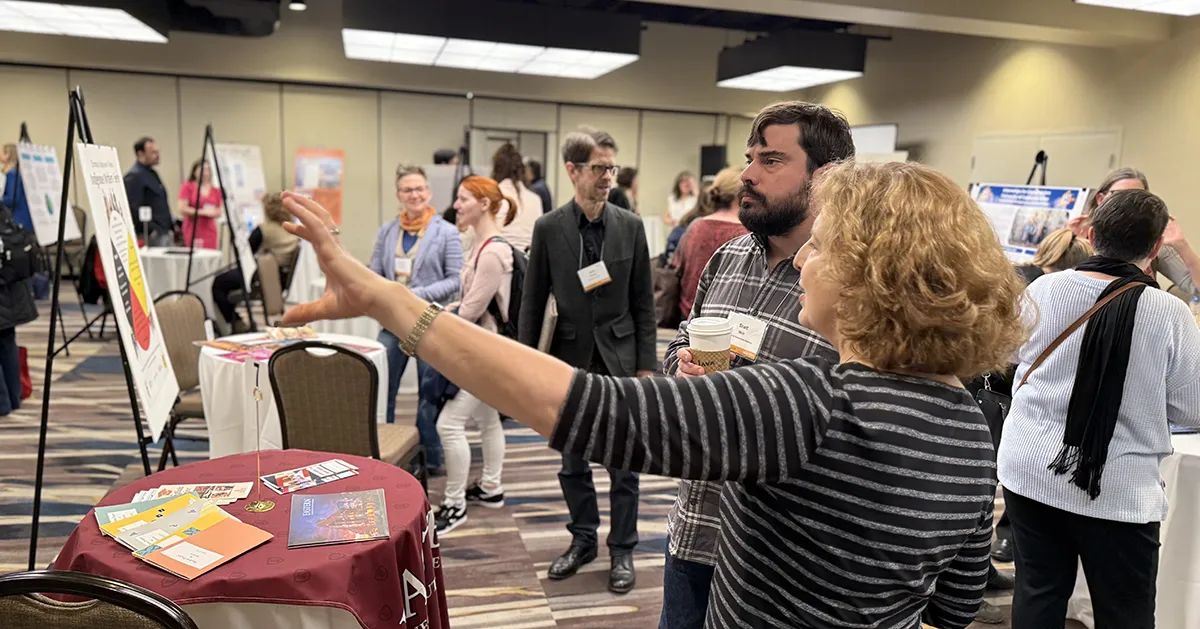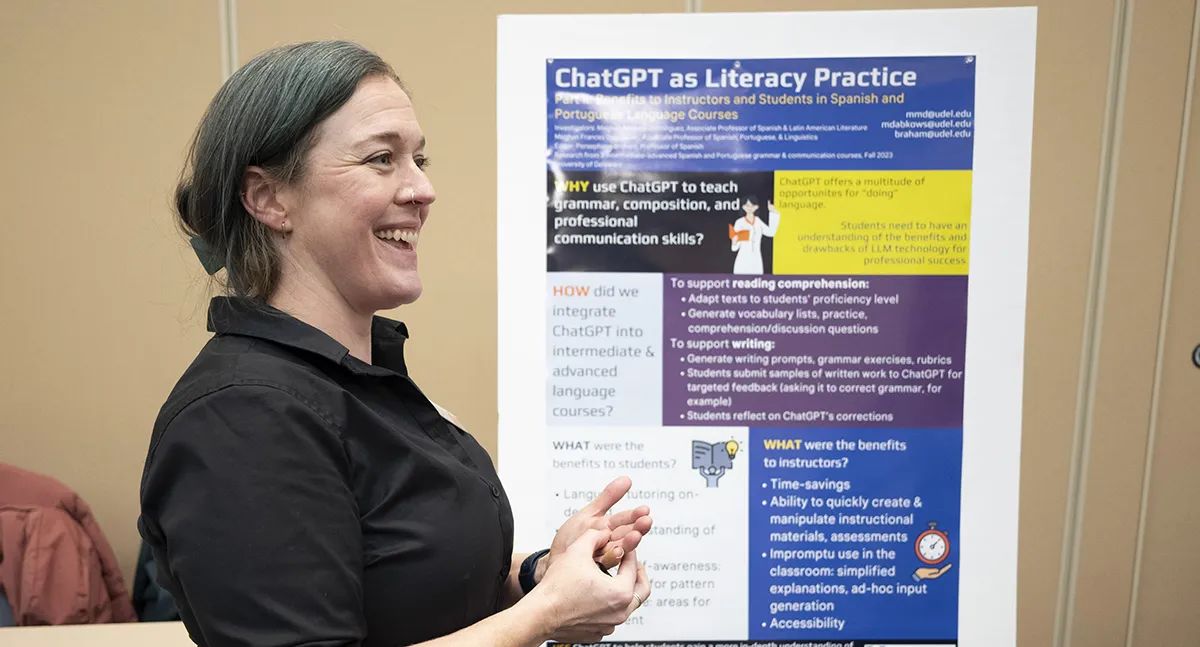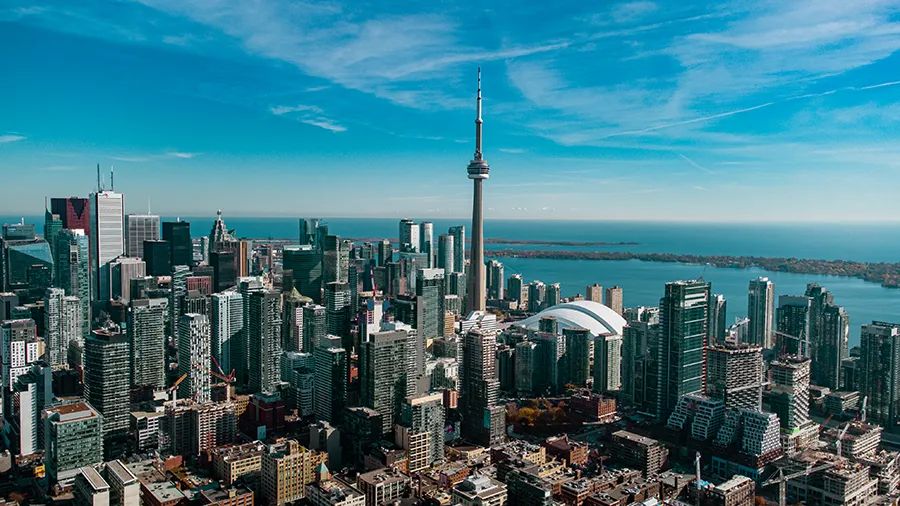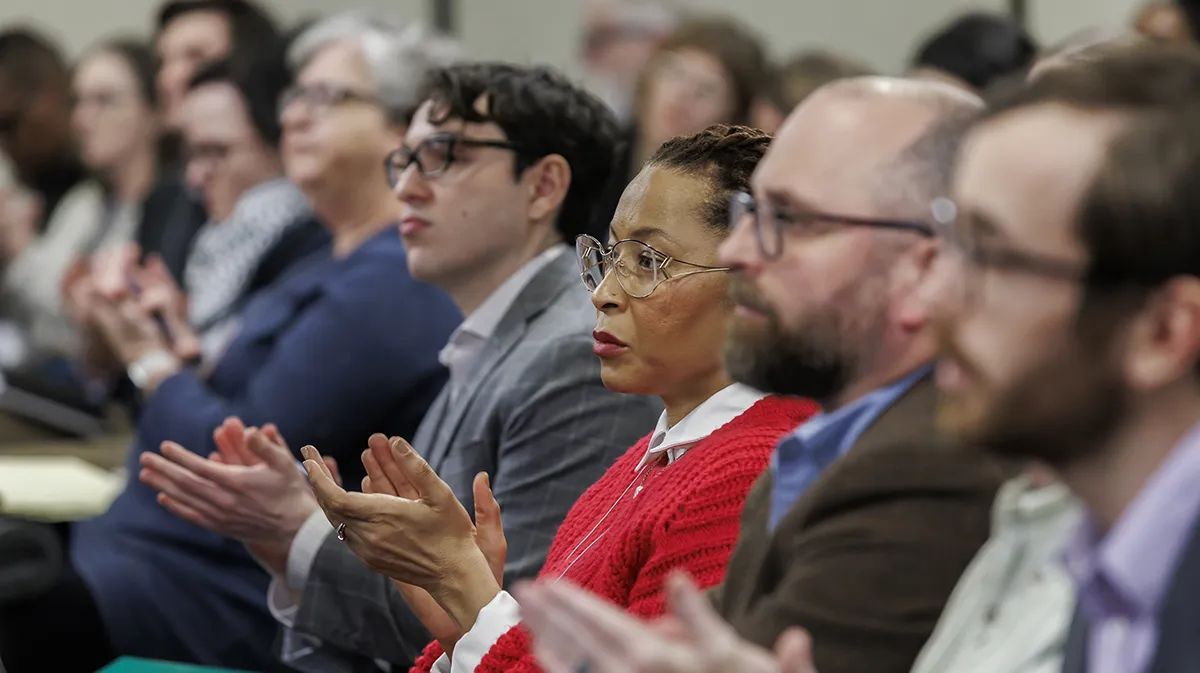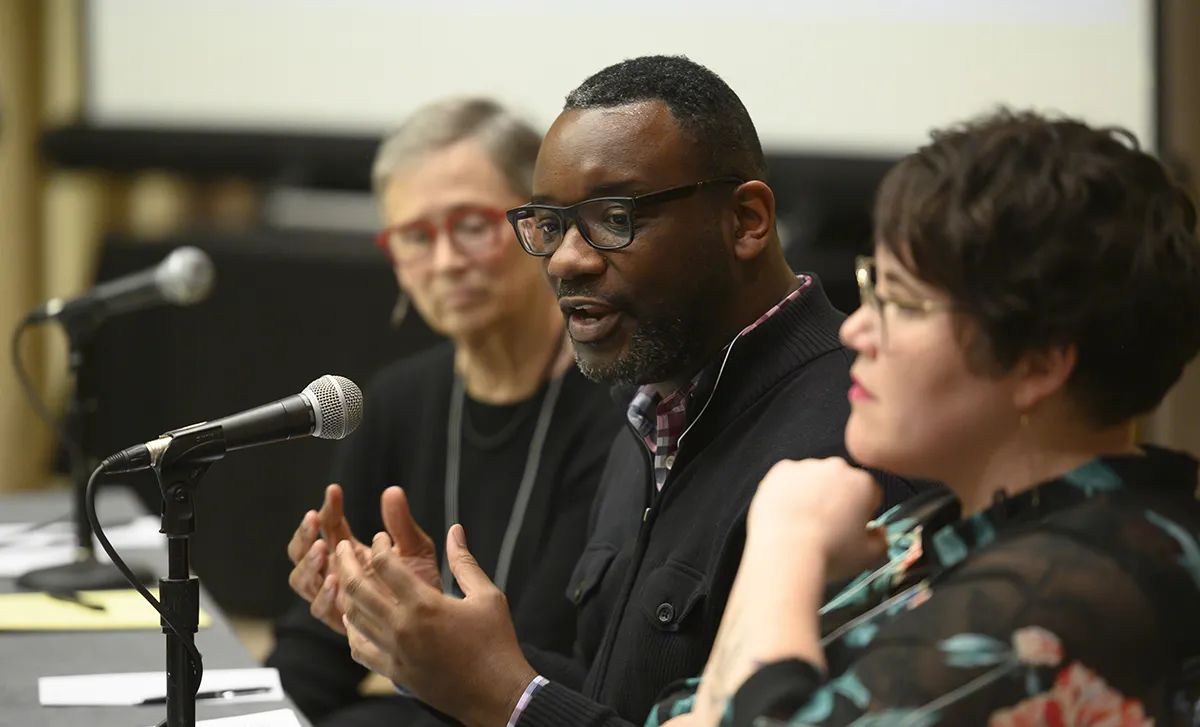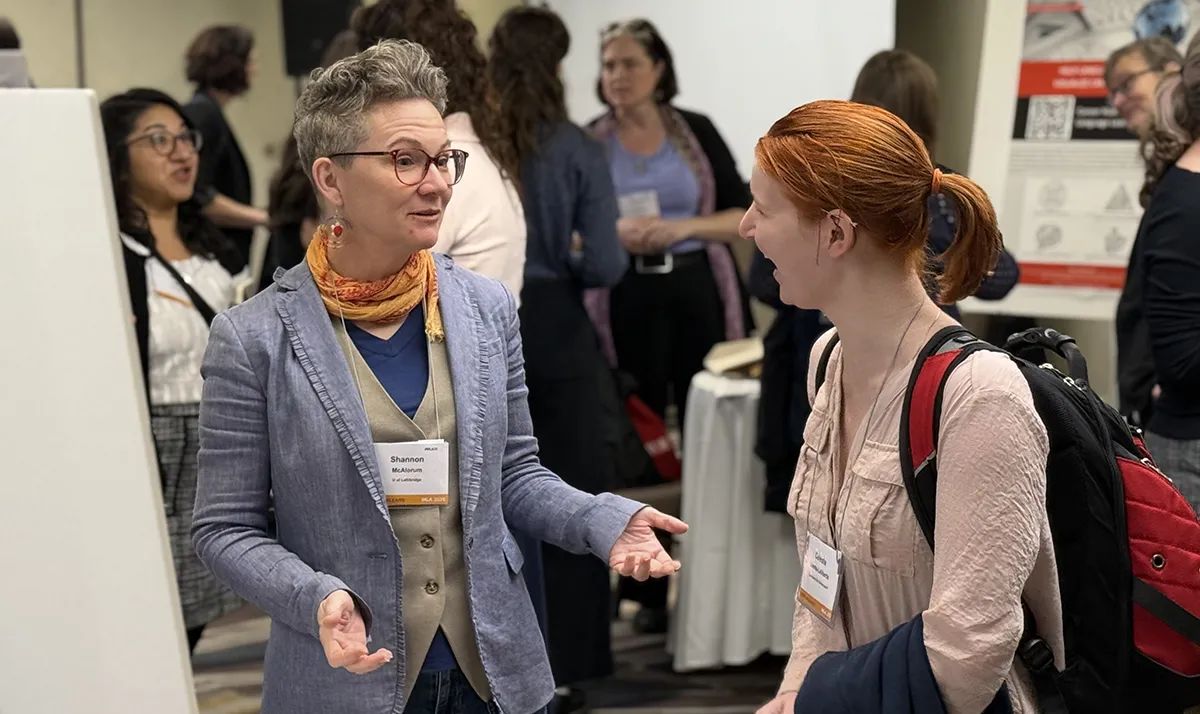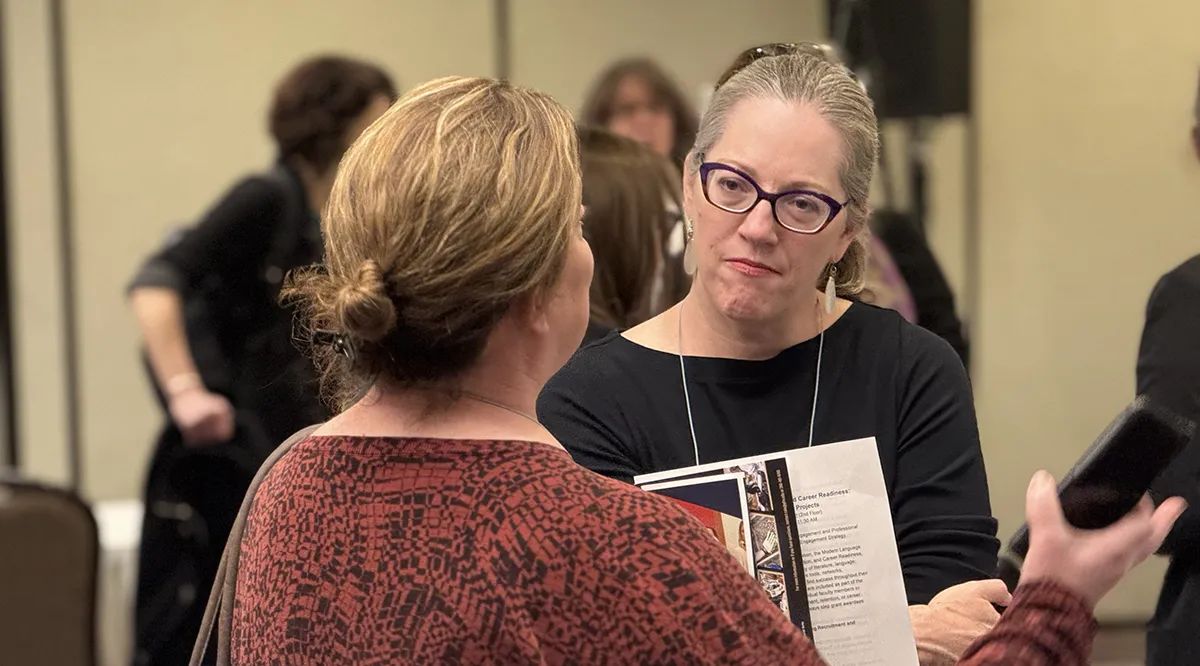MLA Annual Convention 2026:
Finding Community and Strategies for Higher Ed
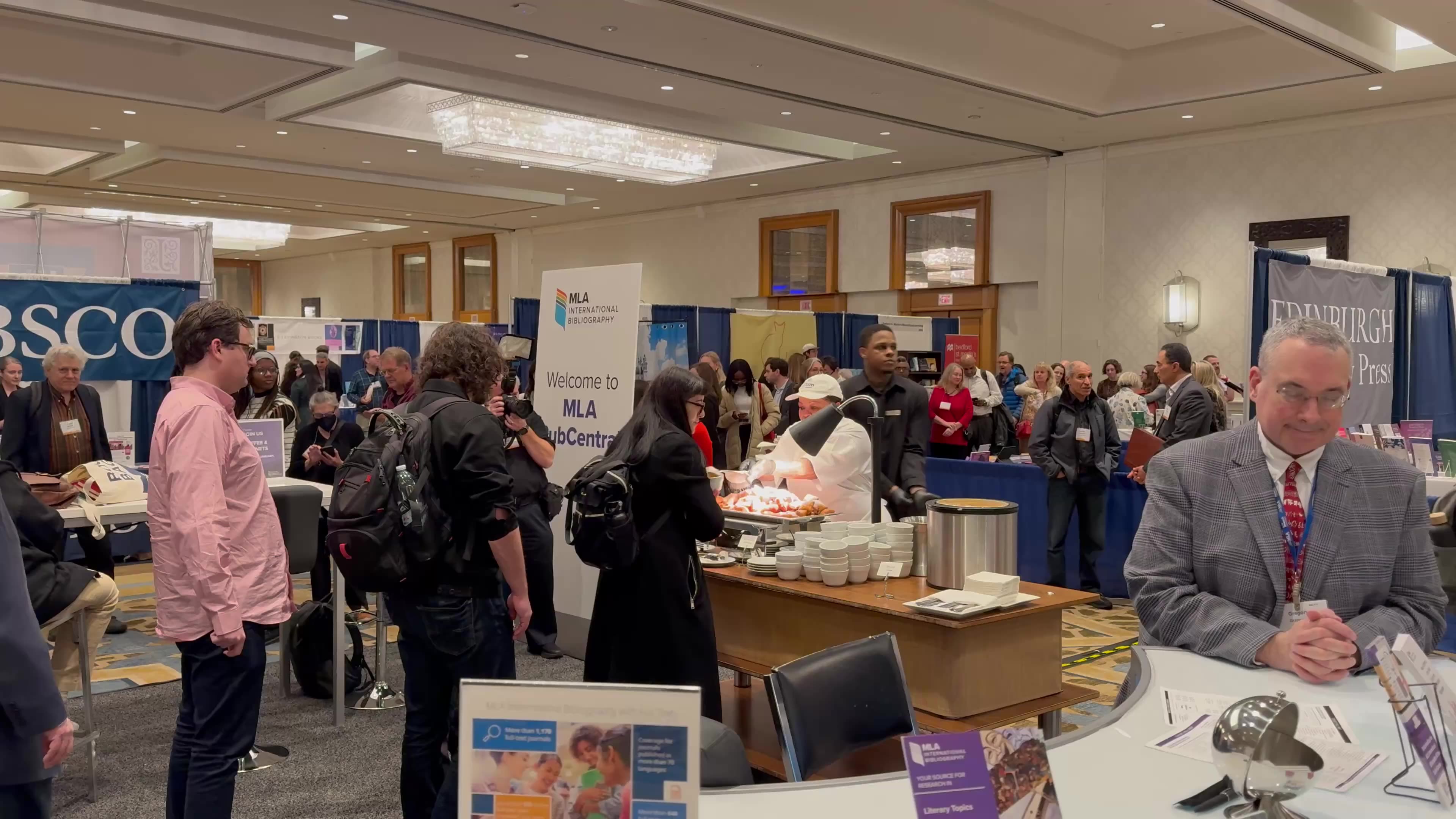
The challenges facing the U.S. higher education sector and, in particular, the humanities, are clear. Threats to academic freedom, federal and state budget cuts to institutions, and questions about the value of higher education are some of the pressures weighing on colleges and universities. Bringing people together to share experiences and develop collective strategies is essential for navigating this volatile climate. The work of the Modern Language Association (MLA) in this sphere continues to be relevant, years after its founding in 1883.
The next MLA Annual Convention will be held in Toronto, Canada, from January 8 to 11, 2026, and is an opportunity for teachers and scholars of languages, literatures, writing and culture to come together to explore solutions to the hurdles they face within higher education. In addition to in-depth discussions on a wide range of academic topics, the convention will amplify the work the MLA is already doing to help faculty members and graduate students protect academic freedom, diversity and inclusivity on campuses while nurturing members’ professional development and sense of community.
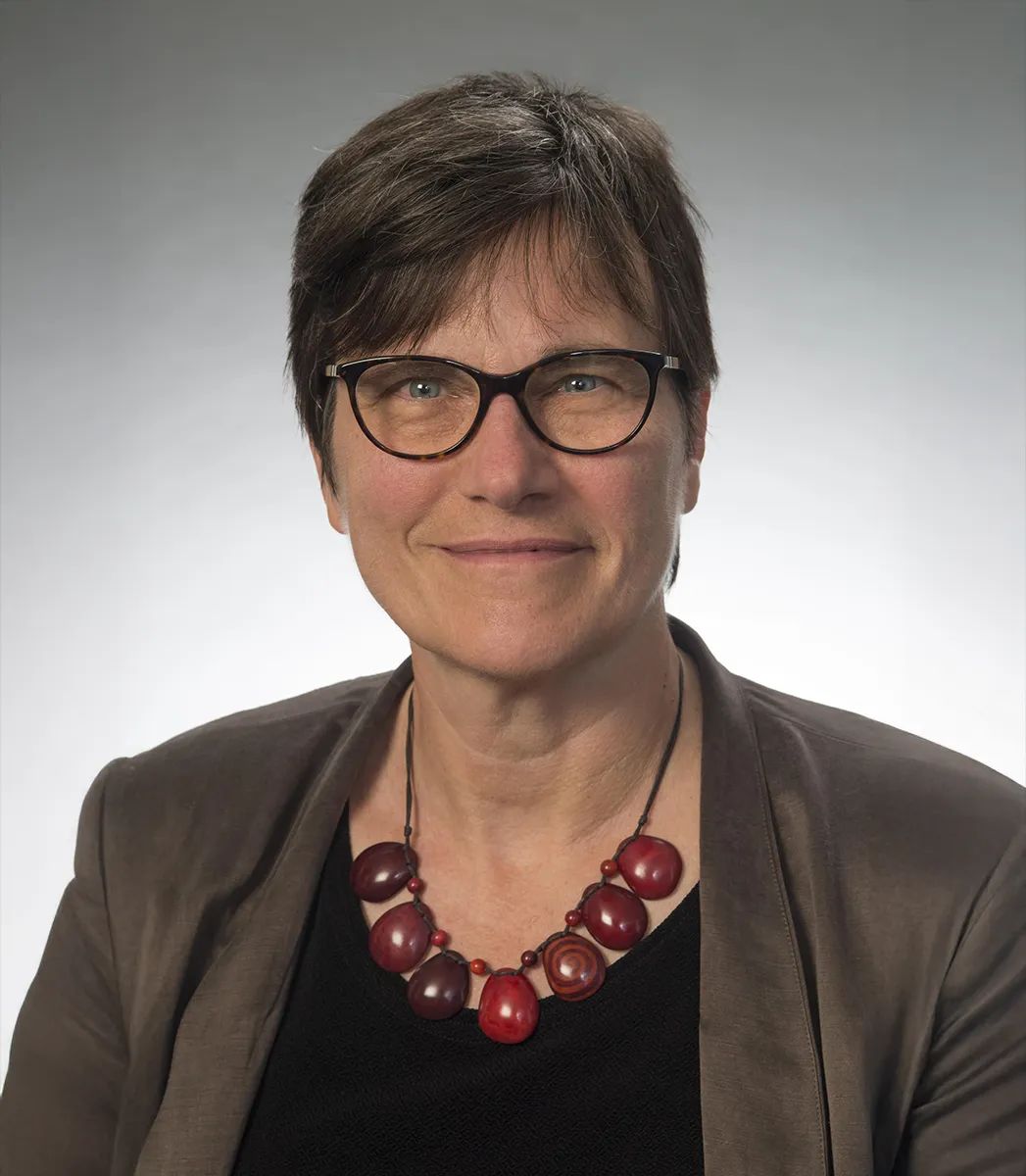
Paula M. Krebs
Paula M. Krebs
“Our convention always addresses more than research,” says Paula M. Krebs, the MLA’s executive director. “But now there’s a real urgency. We’ll be discussing academic freedom, advocacy and how to support growing enrollments, alongside sessions in medieval French literature. What we can do is put some of those discussions in context with each other.”
The theme for the 2026 conference is “family resemblances”—a nod to the diverse makeup of the MLA membership and its collective work. Tina Lu, 2025–26 president of the MLA, is the first Asian American and Asianist to serve in this role and has called on speakers and delegates to consider “our scholarly and professional familial and quasi-familial connections” and embrace the sense of community the MLA offers.
Lu’s presidential plenary, titled “What We Fight For,” will be a roundtable discussion with Michael Roth (Wesleyan University), Jonathan Holloway (Luce Foundation), Alexandra Gillespie (University of Toronto) and Eileen Chengyin Chow (Duke University). They will discuss what Krebs describes as “the current moment,” a sense that institutions are facing a global crisis with many shared challenges while also juggling thorny issues within their campuses. The session will address a key question resonating across the higher education sector today: where do we go from here?
Held at the Metro Toronto Convention Centre, the convention will include an exhibit hall and hundreds of sessions covering literature, pedagogy, media studies, digital humanities, language and AI. Toronto is a fitting location to bring these conversations to life. It is a diverse and cosmopolitan city, home to 18 colleges and universities, including the University of Toronto, which is the lead sponsor of the 2026 event.
Because some attendees may not be able to participate in person, the convention will feature a robust online program of over 100 virtual sessions. Many faculty members work in US institutions on a visa and may have concerns about returning from Canada in the current immigration environment, says Krebs. “We want to offer them a good conference experience and ensure people can attend in the way that makes sense for them.”
On the conference website and on-site during the convention, participants will be able to find a list of sessions by subject, discussion groups tailored to their specific professional needs, one-on-one mentoring slots and networking events and meetups.
Krebs explains that the conference has evolved significantly over the past decade. While the conference no longer serves as a venue for job interviews, the MLA has strengthened its professional development offerings at the convention by including a broad program of guidance for attendees at all career stages. Attendees can find advice on a range of professional subjects, such as applying for grants, finding a publisher and engaging with AI. There will also be hands-on microworkshops for participants, including graduate students, early-career academics and mid-career professionals, on topics such as publicly engaged writing and writing a cover letter.
The MLA’s professional development program reaches thousands of members and helps hundreds of thousands of students every year. The professional development sessions at the convention will build on conversations that the MLA has been having throughout the year at various in-person and online summer events, webinars and virtual workshops. The 2026 event will also feature the MLA’s Professional Development Hub, offering participants a chance to interact with its academic program services and professional development staff.
Alongside the main program, the event offers a curated experience for graduate students. “There’s a lounge for graduate students, giving them somewhere that’s just theirs,” says Krebs. “Every year, we hold a reception for them so they can meet each other, as many grad students come on their own.”
The speakers and panelists will represent different types of institutions, demographics and career stages within higher education. Blending interdisciplinary topics and placing teaching and research in context is at the center of the MLA convention. The session themes will range from gender, virtue and domesticity in medieval Italian and Ming Chinese novellas to food studies and the global Hispanophone.
One of the attractions of the convention is the opportunity to explore themes that may be adjacent to members’ fields as well as those that interest them but are far removed from their everyday work. Many of the themes are interconnected and relevant to the state of higher education today, notes Krebs: “People who work in colonial American studies might still go to a session on Victorian Britain because they want to bounce ideas off each other. Pedagogy and research are part of a larger focus on where we are right now.”
Some of the pedagogical programs include sessions on disability and accessibility in literary research. Their coverage goes beyond classroom teaching, looking at how these issues affect people in their daily lives, Krebs says. One such session looks at subtitling, closed captioning and accessibility across different modalities, considering how a student’s experience of a text might differ if a class is subtitled. Supporting the MLA’s ongoing work with community colleges, there will be several sessions exploring scholarship in these institutions and how higher education can amplify community engagement.
The event aims to provide a sense of belonging and community for anyone in the humanities during this time of volatility and uncertainty. The convention gives faculty and students the chance to connect, share resources, build community and discuss strategies for tackling challenges such as funding cuts, changing government policies and declining student enrollment.
The 2026 convention will offer events where people can socialize with colleagues and show support for the important issues they face, such as advocating for their disciplines at local and national levels. “There are dozens of sessions on how to ask for more resources and fight back against legislative encroachment,” says Krebs. “On campuses, people are dealing with cuts, job losses and curricular interventions. We want this to be a place where people can exchange strategies, share what works and vent about what doesn’t. We want them to feel reinvigorated to go back to campus and know they can do something.”
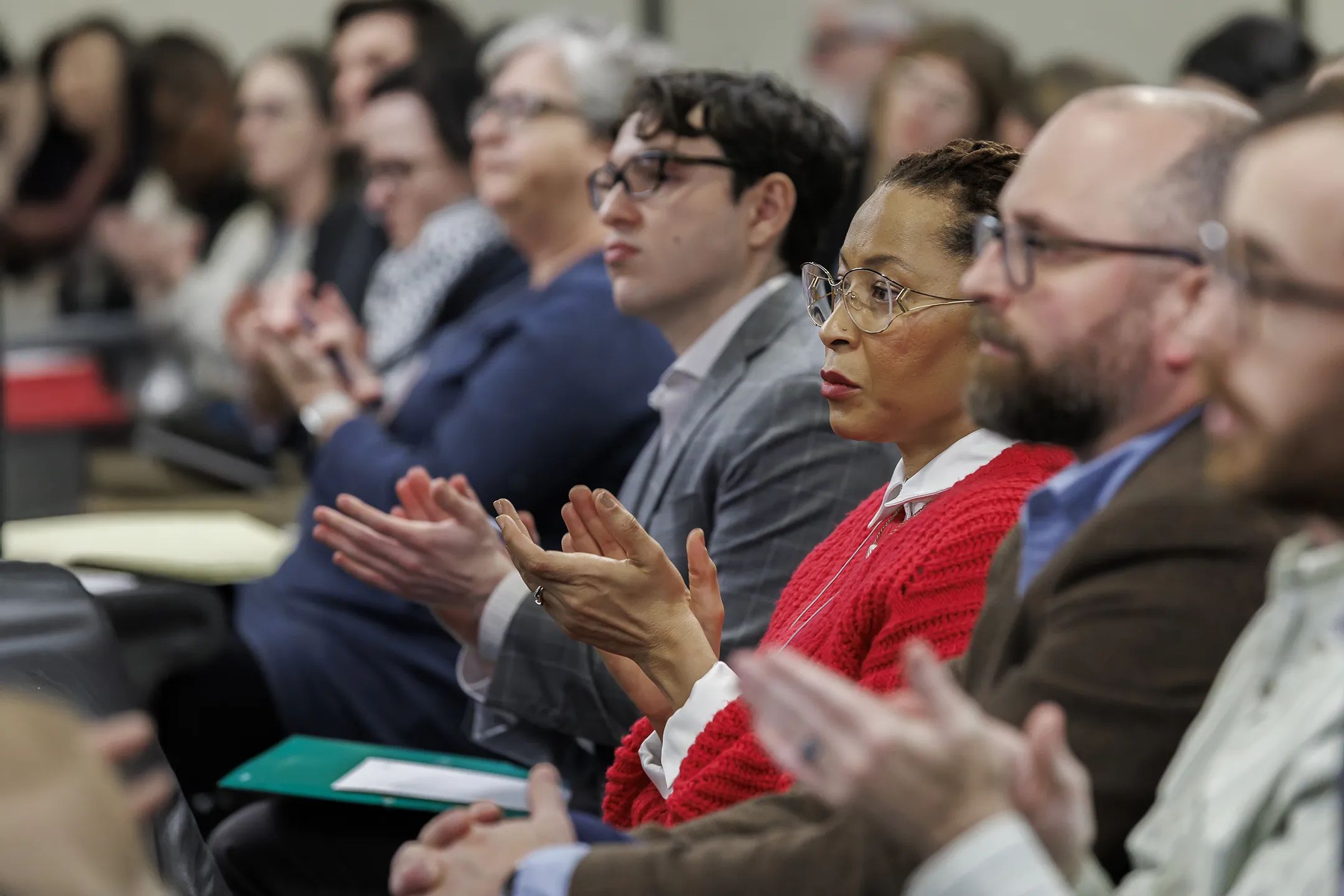
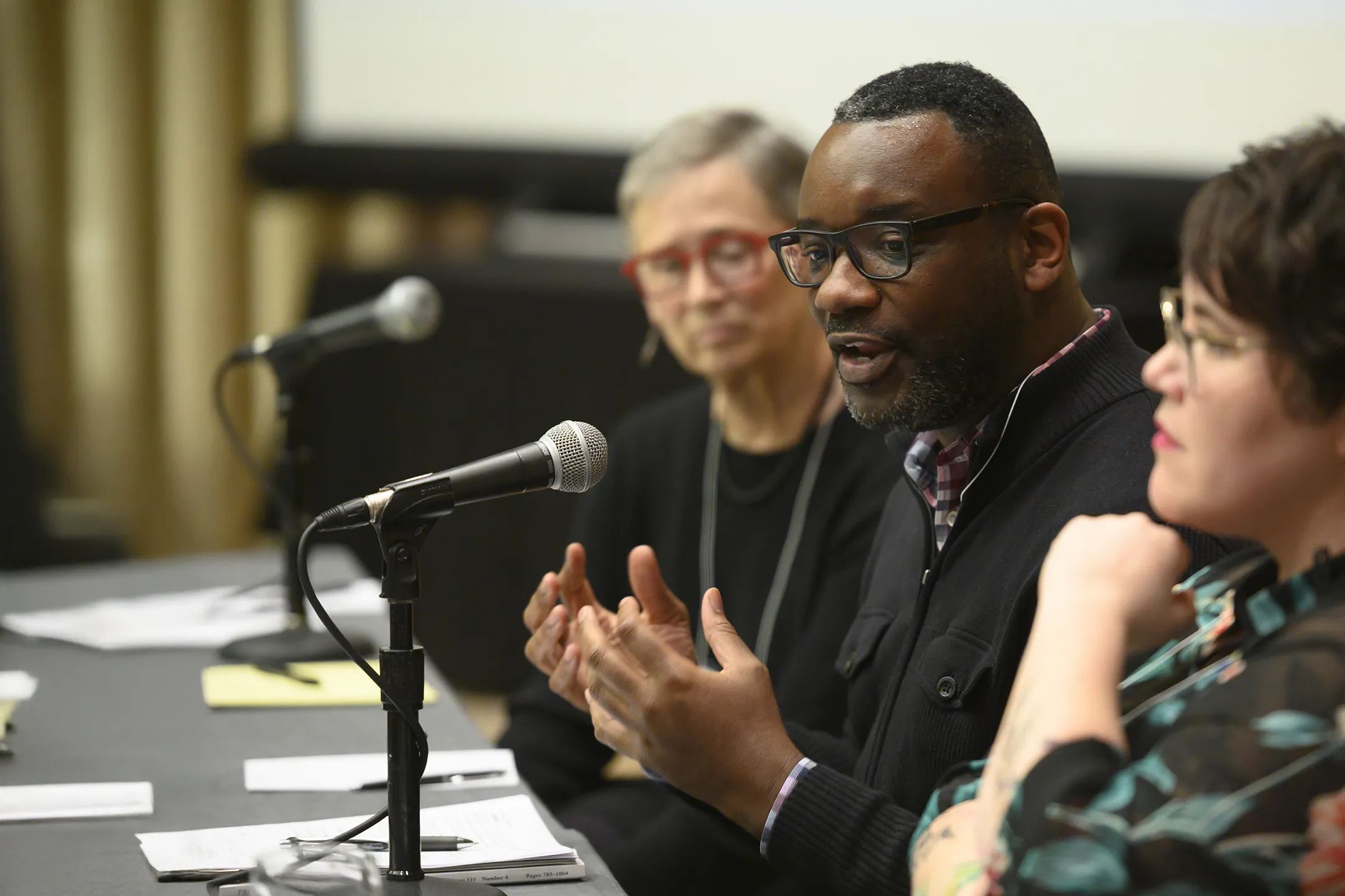
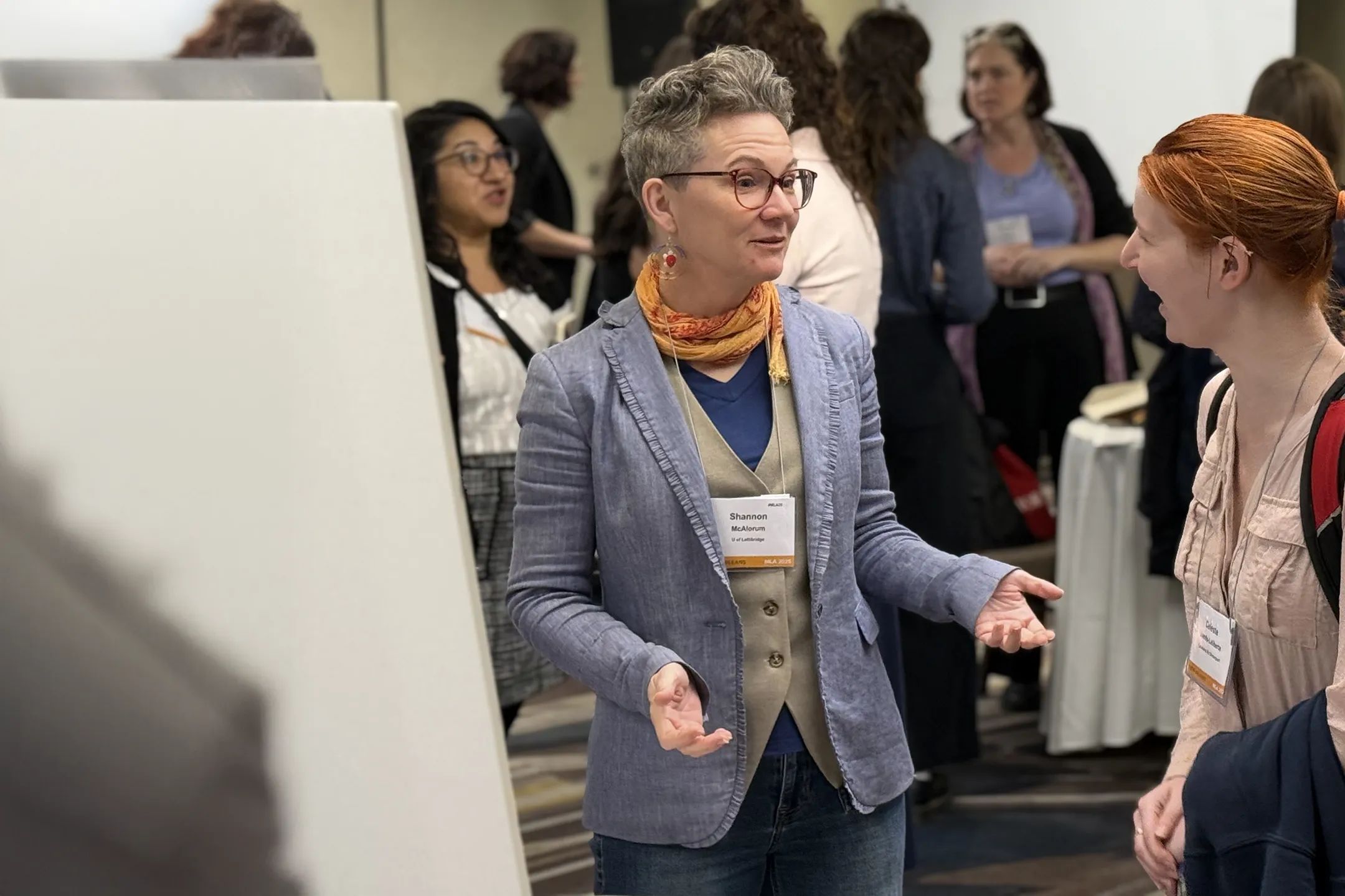
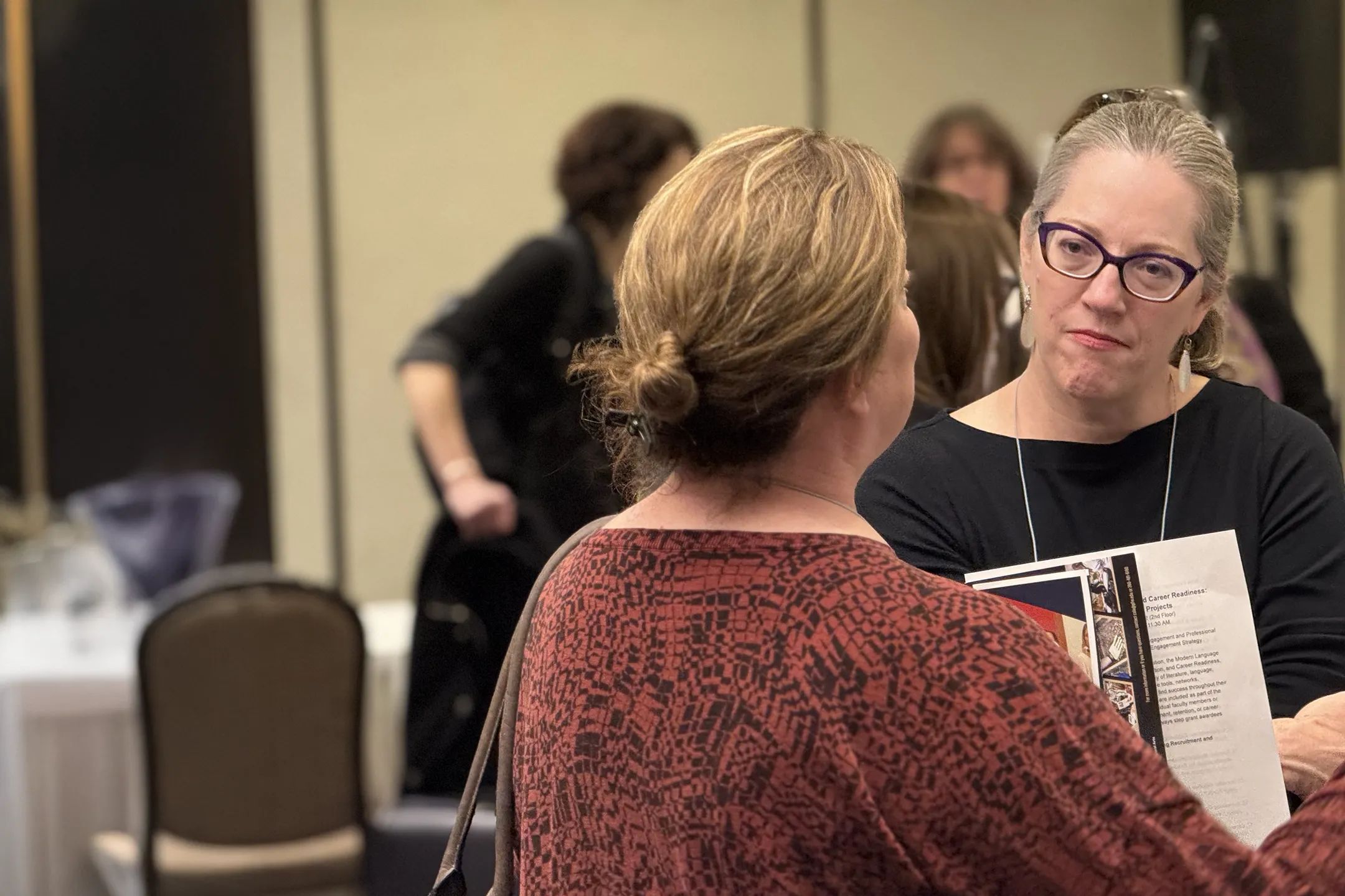
This custom content is sponsored by the Modern Language Association and developed by Inside Higher Ed's sponsored content team. The editorial staff of Inside Higher Ed had no role in its creation.
MLA Annual Convention 2026:
Finding Community and Strategies for Higher Ed

The challenges facing the U.S. higher education sector and, in particular, the humanities, are clear. Threats to academic freedom, federal and state budget cuts to institutions, and questions about the value of higher education are some of the pressures weighing on colleges and universities. Bringing people together to share experiences and develop collective strategies is essential for navigating this volatile climate. The work of the Modern Language Association (MLA) in this sphere continues to be relevant, years after its founding in 1883.
The next MLA Annual Convention will be held in Toronto, Canada, from January 8 to 11, 2026, and is an opportunity for teachers and scholars of languages, literatures, writing and culture to come together to explore solutions to the hurdles they face within higher education. In addition to in-depth discussions on a wide range of academic topics, the convention will amplify the work the MLA is already doing to help faculty members and graduate students protect academic freedom, diversity and inclusivity on campuses while nurturing members’ professional development and sense of community.

Paula M. Krebs
Paula M. Krebs
“Our convention always addresses more than research,” says Paula M. Krebs, the MLA’s executive director. “But now there’s a real urgency. We’ll be discussing academic freedom, advocacy and how to support growing enrollments, alongside sessions in medieval French literature. What we can do is put some of those discussions in context with each other.”
The theme for the 2026 conference is “family resemblances”—a nod to the diverse makeup of the MLA membership and its collective work. Tina Lu, 2025–26 president of the MLA, is the first Asian American and Asianist to serve in this role and has called on speakers and delegates to consider “our scholarly and professional familial and quasi-familial connections” and embrace the sense of community the MLA offers.
Lu’s presidential plenary, titled “What We Fight For,” will be a roundtable discussion with Michael Roth (Wesleyan University), Jonathan Holloway (Luce Foundation), Alexandra Gillespie (University of Toronto) and Eileen Chengyin Chow (Duke University). They will discuss what Krebs describes as “the current moment,” a sense that institutions are facing a global crisis with many shared challenges while also juggling thorny issues within their campuses. The session will address a key question resonating across the higher education sector today: where do we go from here?
Held at the Metro Toronto Convention Centre, the convention will include an exhibit hall and hundreds of sessions covering literature, pedagogy, media studies, digital humanities, language and AI. Toronto is a fitting location to bring these conversations to life. It is a diverse and cosmopolitan city, home to 18 colleges and universities, including the University of Toronto, which is the lead sponsor of the 2026 event.
Because some attendees may not be able to participate in person, the convention will feature a robust online program of over 100 virtual sessions. Many faculty members work in US institutions on a visa and may have concerns about returning from Canada in the current immigration environment, says Krebs. “We want to offer them a good conference experience and ensure people can attend in the way that makes sense for them.”
On the conference website and on-site during the convention, participants will be able to find a list of sessions by subject, discussion groups tailored to their specific professional needs, one-on-one mentoring slots and networking events and meetups.
Krebs explains that the conference has evolved significantly over the past decade. While the conference no longer serves as a venue for job interviews, the MLA has strengthened its professional development offerings at the convention by including a broad program of guidance for attendees at all career stages. Attendees can find advice on a range of professional subjects, such as applying for grants, finding a publisher and engaging with AI. There will also be hands-on microworkshops for participants, including graduate students, early-career academics and mid-career professionals, on topics such as publicly engaged writing and writing a cover letter.
The MLA’s professional development program reaches thousands of members and helps hundreds of thousands of students every year. The professional development sessions at the convention will build on conversations that the MLA has been having throughout the year at various in-person and online summer events, webinars and virtual workshops. The 2026 event will also feature the MLA’s Professional Development Hub, offering participants a chance to interact with its academic program services and professional development staff.
Alongside the main program, the event offers a curated experience for graduate students. “There’s a lounge for graduate students, giving them somewhere that’s just theirs,” says Krebs. “Every year, we hold a reception for them so they can meet each other, as many grad students come on their own.”
The speakers and panelists will represent different types of institutions, demographics and career stages within higher education. Blending interdisciplinary topics and placing teaching and research in context is at the center of the MLA convention. The session themes will range from gender, virtue and domesticity in medieval Italian and Ming Chinese novellas to food studies and the global Hispanophone.
One of the attractions of the convention is the opportunity to explore themes that may be adjacent to members’ fields as well as those that interest them but are far removed from their everyday work. Many of the themes are interconnected and relevant to the state of higher education today, notes Krebs: “People who work in colonial American studies might still go to a session on Victorian Britain because they want to bounce ideas off each other. Pedagogy and research are part of a larger focus on where we are right now.”
Some of the pedagogical programs include sessions on disability and accessibility in literary research. Their coverage goes beyond classroom teaching, looking at how these issues affect people in their daily lives, Krebs says. One such session looks at subtitling, closed captioning and accessibility across different modalities, considering how a student’s experience of a text might differ if a class is subtitled. Supporting the MLA’s ongoing work with community colleges, there will be several sessions exploring scholarship in these institutions and how higher education can amplify community engagement.
The event aims to provide a sense of belonging and community for anyone in the humanities during this time of volatility and uncertainty. The convention gives faculty and students the chance to connect, share resources, build community and discuss strategies for tackling challenges such as funding cuts, changing government policies and declining student enrollment.
The 2026 convention will offer events where people can socialize with colleagues and show support for the important issues they face, such as advocating for their disciplines at local and national levels. “There are dozens of sessions on how to ask for more resources and fight back against legislative encroachment,” says Krebs. “On campuses, people are dealing with cuts, job losses and curricular interventions. We want this to be a place where people can exchange strategies, share what works and vent about what doesn’t. We want them to feel reinvigorated to go back to campus and know they can do something.”
This custom content is sponsored by the Modern Language Association and developed by Inside Higher Ed's sponsored content team. The editorial staff of Inside Higher Ed had no role in its creation.

